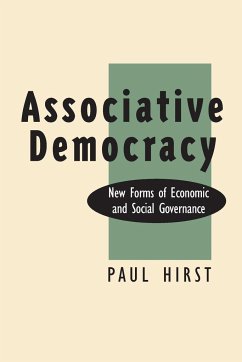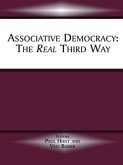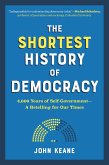At the end of the twentieth century, it becomes ever more clear that Western countries are witnessing the exhaustion of the two great political and economic systems-democratic capitalism and collective state socialism-that have held sway for the past 150 years. Yet neither the traditional Right nor Left has been able to provide viable solutions to this crisis. In this book, Paul Hirst offers a new approach, which he calls associative democracy. Not simply a utopian idea, associative democracy calls for new forms of economic and social governance as supplements to representative democracy and market economies. It addresses the problems of the overload of big government by democratizing and empowering civil society. It transfers social provision to self-governing voluntary associations, while retaining public funding and political accountability. In the economic sphere, it advocates regional economic regulation through public-private partnerships, the promotion of self-governing industrial districts, and the democratization of the company.
'Who speaks against democracy? No one. But unthinking consensus isa danger; turning a still novel concept into a received idea. Bycontrast Paul Hirst shows how difficult and important the term is,how contested its content still remains, and how significant areits links to the economy as well as the polity. His major studyconfirms that democracy has only just arrived. AssociativeDemocracy will be a benchmark for the debate over wheredemocracy can, and should, lead human society.' Anthony Barnett,Co-ordinator Charter 88
'This is an important and invigorating contribution to ongoingdebates about welfare and governance in contemporary Westernsocieties. It deserves to be widely read.' Political StudiesAssociation
'Representative government and corporate bureaucracy havedominated the 20th century. In this book Paul Hirst has the boldambition of reviving the alternative 19th century traditions ofpluralism, co-operation and voluntary association to complement ifnot replace them. But he modifies these alternatives both in theoryand by reference to recent institutional experiment. It is anattractive prospect, delineated with force and learning.' JamesCornford, Institute for Public Policy Research
'This very clearly written and original book should play a keyrole in the increasingly intense, and hopefully productive,argument about the revitalisation of democratic systems.'Sociology
'Hirst defends his proposal with commendable confidence andvigour. It has a pleasing plausibility, and it is good to seegenuinely radical suggestions being advanced at the present time.'Radical Philosophy
'... This persuasive book, ... full of sharp insights.'British Journal of Sociology
'This is an important and invigorating contribution to ongoingdebates about welfare and governance in contemporary Westernsocieties. It deserves to be widely read.' Political StudiesAssociation
'Representative government and corporate bureaucracy havedominated the 20th century. In this book Paul Hirst has the boldambition of reviving the alternative 19th century traditions ofpluralism, co-operation and voluntary association to complement ifnot replace them. But he modifies these alternatives both in theoryand by reference to recent institutional experiment. It is anattractive prospect, delineated with force and learning.' JamesCornford, Institute for Public Policy Research
'This very clearly written and original book should play a keyrole in the increasingly intense, and hopefully productive,argument about the revitalisation of democratic systems.'Sociology
'Hirst defends his proposal with commendable confidence andvigour. It has a pleasing plausibility, and it is good to seegenuinely radical suggestions being advanced at the present time.'Radical Philosophy
'... This persuasive book, ... full of sharp insights.'British Journal of Sociology








